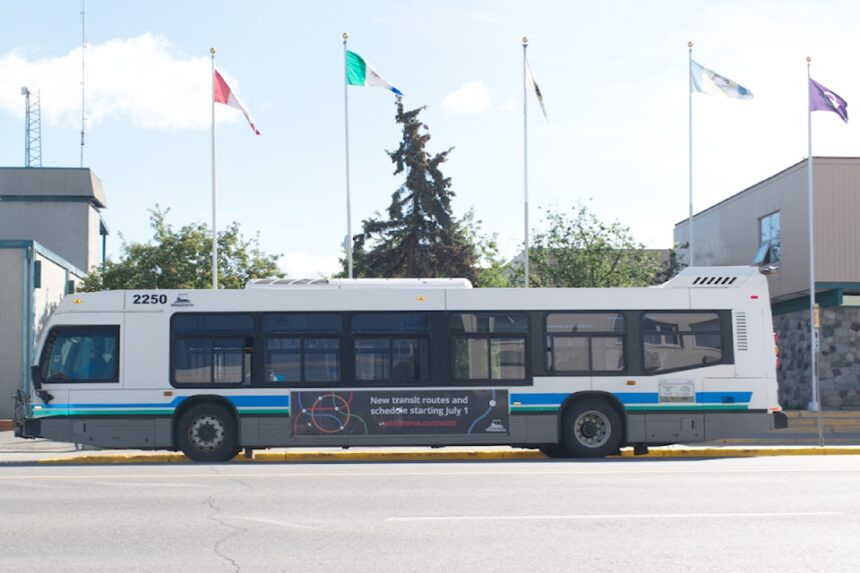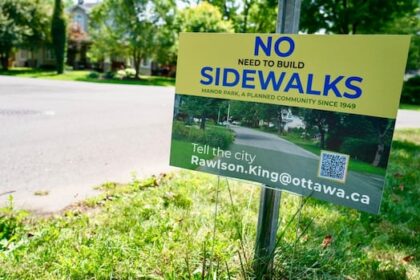Thanks to an unexpected hit of money from YG, the city is considering implementing the $1 fare increase over longer time frame Whitehorse’s transit fare increase may be a bit more gradual than initially planned. At April 8’s standing committee meeting, Whitehorse city councillors heard that the city got around $2 million more than expected in this year’s comprehensive municipal grant, which is a chunk of no-strings-attached money distributed from YG to Yukon municipalities annually. If council sees fit, they could change the operating budget and use that money to take a gradual approach to hiking transit fares. Earlier this year, YG announced that municipal grant amounts would be increased. Whereas Whitehorse received just under $10 million in 2024, this year’s grant for the city is $12,993,040 — an increase of $3,188,767. As reported by the News in March, councillors did speculate about using the grant money to help phase-in a one-dollar fare increase set to take place on July 1 of this year. Now, that speculation can become a reality, as city staff are proposing the city use $132,000 of that unexpected extra $2.4 million to delay the full fare increase. Should council approve this measure, the fare will jump from the current $2.50 to $3 in July, as opposed to the originally anticipated increase to $3.50. Fares would then increase again in summer 2026, from $3 to $3.50. Coun. Paolo Gallina proposed hitting pause on passing the city’s budget during budget deliberations in February, in order to find a way to phase in the transit fare increase. The rest of council, save for Coun. Lenore Morris, did not support the motion: Coun. Dan Boyd had added a rider which would force staff to also cut property taxes as well as phase-in fares, which would create a shortfall of $264,000 in 2025 alone. Councillors had also heard delegates speak against the fare increase during a public hearing on the budget during February 10. Delegates have also asked city council to implement free transit earlier this year. Svetlana Erickson, the city’s manager of finances, told councillors that the city was not expecting the extra $2.4 million from YG. The money left over from covering the shortfall left by phasing in the transit fare increase would be around $2.3 million, and would be stashed away into the city’s general reserve. Councillors also asked whether they could anticipate the same amount in next year’s municipal grant. Erickson said the formula used to calculate the grant had been updated, resulting in the increase, but couldn’t comment on future changes to the grant. John Tonin, the spokesperson for the department of community services with YG, told the News via email on April 8 that the standard CMG amount from this point forward will be the 2024 amount, not the 2025 amount, meaning municipalities will not receive less than what they got in 2024. For example, he said, Whitehorse got $9,804,273 that year. “However, it is anticipated the CMG will see year-by-year changes. The formula considers a base amount per municipality; and factors in the population, number of homes, the infrastructure assets that provide services and the municipalities’ own revenue generation capacity,” wrote Tonin. Council will have an opportunity to vote on the matter at the next city council meeting, currently scheduled for April 14. Contact Talar Stockton at talar.stockton@yukon-news.com
Friday, 6 Feb 2026
Canada – The Illusion
Search
Have an existing account?
Sign In
© 2022 Foxiz News Network. Ruby Design Company. All Rights Reserved.
You May also Like
- More News:
- history
- Standing Bear Network
- John Gonzalez
- ᐊᔭᐦᑊ ayahp — It happened
- Creation
- Beneath the Water
- Olympic gold medal
- Jim Thorpe
- type O blood
- the bringer of life
- Raven
- Wás’agi
- NoiseCat
- 'Sugarcane'
- The rivers still sing
- ᑲᓂᐸᐏᐟ ᒪᐢᑿ
- ᐅᑳᐤ okâw — We remember
- ᐊᓂᓈᐯᐃᐧᐣ aninâpêwin — Truth
- This is what it means to be human.
- Nokoma










